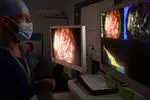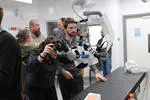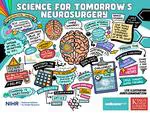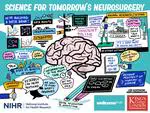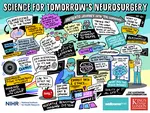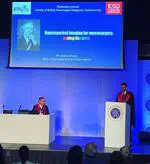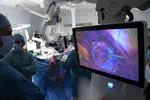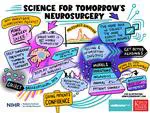NeuroPPEye
Post overview:
- Focus: Support surgical imaging data analysis tasks and work on computational algorithms to help streamline data annotation
- Line manager: Tom Vercauteren
- Salary: Grade 5, £38,482 - £43,249 or Grade 6, £44,355 – £47,882 (max SP34) per annum including LWA depending on experience
- Duration: Fixed term contract until 30 Sep 2025
On 21st September we held our fourth ‘Science for Tomorrow’s Neurosurgery’ PPI group meeting online, with presentations from Oscar, Matt and Silvère. Presentations focused on an update from the NeuroHSI trial, with clear demonstration of improvements in resolution of the HSI images we are now able to acquire; this prompted real praise from our patient representatives, which is extremely reassuring for the trial going forward. We also took this opportunity to announce the completion of the first phase of NeuroPPEYE, in which we aim to use HSI to quantify tumour fluorescence beyond that which the human eye can see. Discussions were centered around the theme of “what is an acceptable number of participants for proof of concept studies,” generating very interesting points of view that ultimately concluded that there was no “hard number” from the patient perspective, as long as a thorough assessment of the technology had been carried out. This is extremely helpful in how we progress with the trials, particularly NeuroPPEYE, which will begin recruitment for its second phase shortly. Once again, the themes and discussions were summarized in picture format by our phenomenal illustrator, Jenny Leonard (see below) and we are already making plans for our next meeting in February 2024!
Post overview:
- Focus: Translational research on hyperspectral-based quantitative fluorescence imaging linked with a neurosurgery clinical study
- Line manager: Tom Vercauteren
- Clinical collaborator: King’s College Hospital
- Industry collaborator: Hypervision Surgical
- Salary: Grade 6, £41,386-£48,414 or Grade 7 £49,737-£55,306 per annum, including London Weighting Allowance
We are working to develop new technologies that combine a new type of camera system, referred to as hyperspectral, with Artificial Intelligence (AI) systems to reveal to neurosurgeons information that is otherwise not visible to the naked eye during surgery. Two studies are currently bringing this “hyperspectral” technology to operating theatres. The NeuroHSI study uses a hyperspectral camera attached to an external scope to show surgeons critical information on tissue blood flow and distinguishes vulnerable structures which need to be protected. The NeuroPPEye study is developing this technology adapted for surgical microscopes, to guide tumour surgery.
